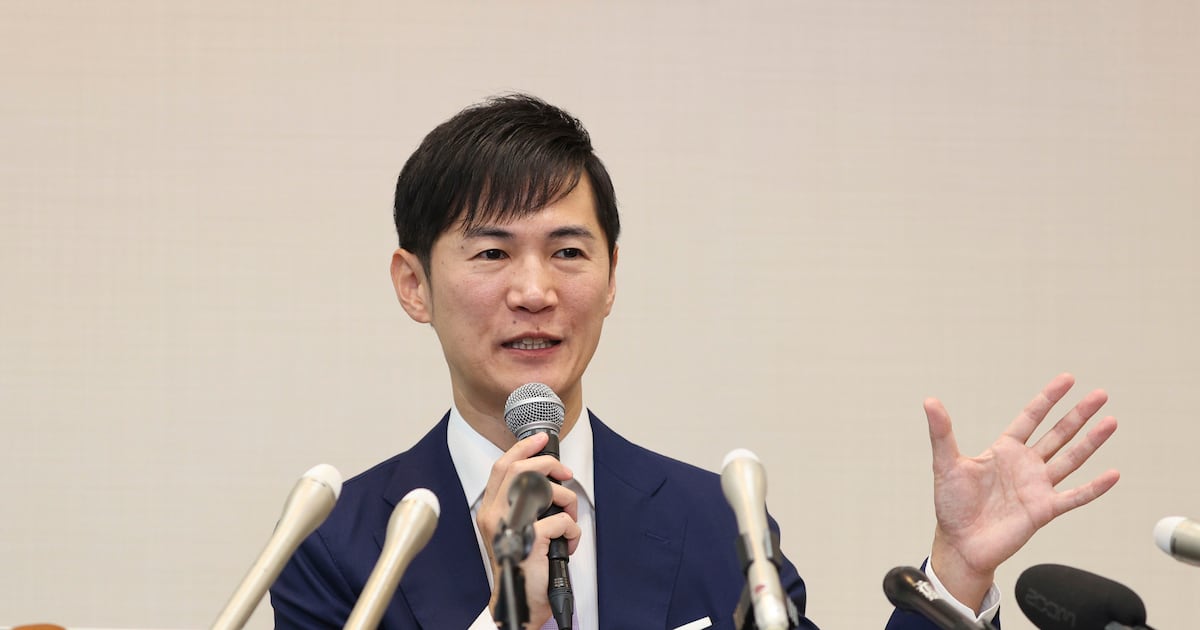Technology
Japanese Party Proposes Chatbot Penguin as Political Leader

In a surprising move, the Japanese political party, Path to Rebirth, has proposed a chatbot penguin as its new leader following disappointing election results. The party’s founder, Shinji Ishimaru, stepped down after the party failed to secure any seats in recent elections. Human candidate Koki Okumura, a 25-year-old doctoral student at Kyoto University specializing in artificial intelligence, won the leadership contest and outlined an ambitious plan that envisions AI playing a central role in political decision-making.
At a press conference this week, Okumura revealed that the party would install an AI penguin avatar as its “AI leader.” He described himself as the assistant to this virtual figurehead, which is intended to reflect Japan’s cultural affinity for animals. Though the penguin will not run for elections due to legal requirements stipulating candidates must be human, Okumura expressed his belief that AI can enhance political processes. “I believe it has the potential to achieve things with greater precision than humans,” he stated, emphasizing the potential for AI to consider voices often overlooked in traditional political discourse.
While there is no established timeline for the AI’s introduction, Okumura mentioned that a preparatory committee is in development. The proposal comes at a time when the Japanese government is increasingly advocating for the integration of AI technologies to address challenges posed by the nation’s aging workforce. Various government departments have adopted AI for tasks ranging from clerical work to property management, but Okumura’s vision extends this concept into a more radical political realm.
Despite the innovative approach, concerns have been raised about the feasibility of such a plan. Hiroshi Shiratori, a political science professor at Hosei University in Tokyo, expressed skepticism about the public’s readiness to support a party reliant on AI. “Voters choose the person they can rely on, and the AI is totally apart from that,” he noted. Shiratori believes that if political parties delegate all decision-making to AI, it could lead to a homogenization of political views that undermines democratic principles.
The concept of AI in politics is not entirely new. Last year, Victor Miller ran for mayor in Cheyenne, Wyoming, featuring an AI chatbot named VIC on his ballot. Similarly, a candidate in the UK named AI Steve attempted to enter a parliamentary election with plans to delegate authority to a neural network. Both cases encountered resistance, with OpenAI restricting their access to AI models and officials clarifying that AI cannot serve as a qualified elector.
Experts warn against the ethical implications of allowing AI to influence political decisions. Thomas Ferretti, a senior lecturer in ethics and sustainable business at the University of Greenwich, cautioned that while AI can enhance efficiency, it lacks the capacity for moral judgment. “People have different values and disagree about what our societal goals should be,” he said, highlighting the complexity of political decision-making.
Moreover, Theodore Lechterman, the UNESCO Chair in AI Ethics and Governance at IE University in Spain, emphasized the need for human accountability in political systems. He noted that the relationship between politicians and voters entails much more than mere delegation of power, encompassing social interactions and responsiveness to constituents.
Despite the challenges, Okumura remains optimistic. He believes that society is moving towards a future where interactions with AI will become commonplace, urging the need for evolving political structures. “We want to be the first to conduct that experiment at the cutting edge,” he asserted during the press conference.
As the debate around AI in politics continues, the Path to Rebirth’s unique proposal may either pave the way for innovative political participation or serve as a cautionary tale regarding the limits of technology in governance.
-

 Politics4 weeks ago
Politics4 weeks agoSecwepemc First Nation Seeks Aboriginal Title Over Kamloops Area
-

 World5 months ago
World5 months agoScientists Unearth Ancient Antarctic Ice to Unlock Climate Secrets
-

 Entertainment5 months ago
Entertainment5 months agoTrump and McCormick to Announce $70 Billion Energy Investments
-

 Science5 months ago
Science5 months agoFour Astronauts Return to Earth After International Space Station Mission
-

 Lifestyle5 months ago
Lifestyle5 months agoTransLink Launches Food Truck Program to Boost Revenue in Vancouver
-

 Technology3 months ago
Technology3 months agoApple Notes Enhances Functionality with Markdown Support in macOS 26
-

 Lifestyle3 months ago
Lifestyle3 months agoManitoba’s Burger Champion Shines Again Amid Dining Innovations
-

 Top Stories2 months ago
Top Stories2 months agoUrgent Update: Fatal Crash on Highway 99 Claims Life of Pitt Meadows Man
-

 Politics4 months ago
Politics4 months agoUkrainian Tennis Star Elina Svitolina Faces Death Threats Online
-

 Sports5 months ago
Sports5 months agoSearch Underway for Missing Hunter Amid Hokkaido Bear Emergency
-

 Politics5 months ago
Politics5 months agoCarney Engages First Nations Leaders at Development Law Summit
-

 Technology5 months ago
Technology5 months agoFrosthaven Launches Early Access on July 31, 2025





















